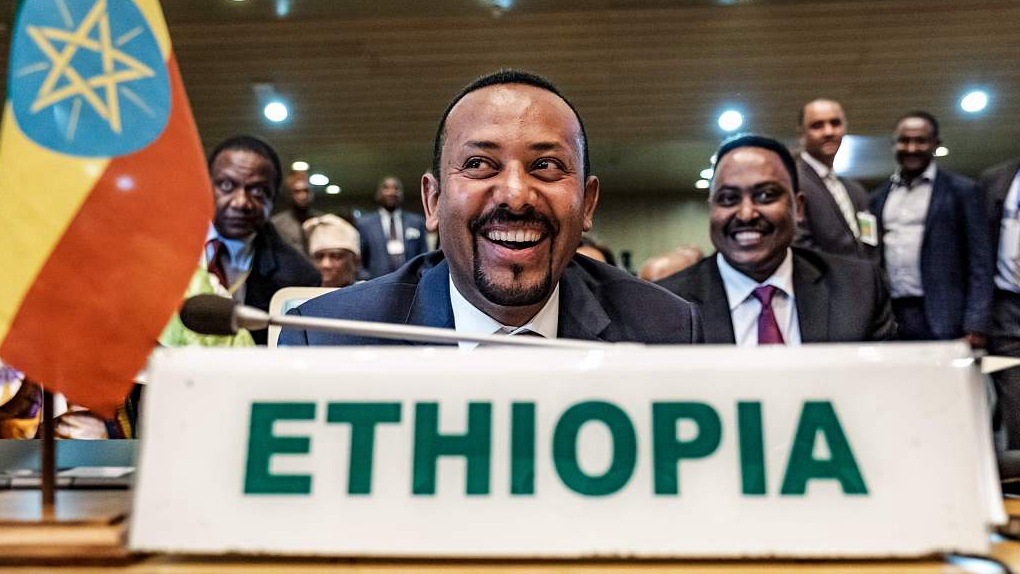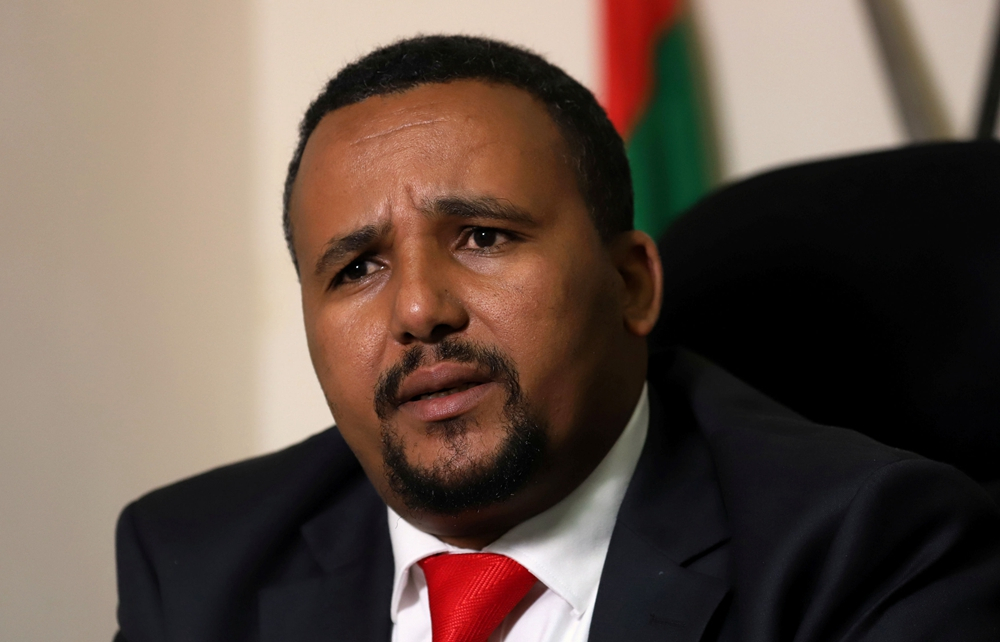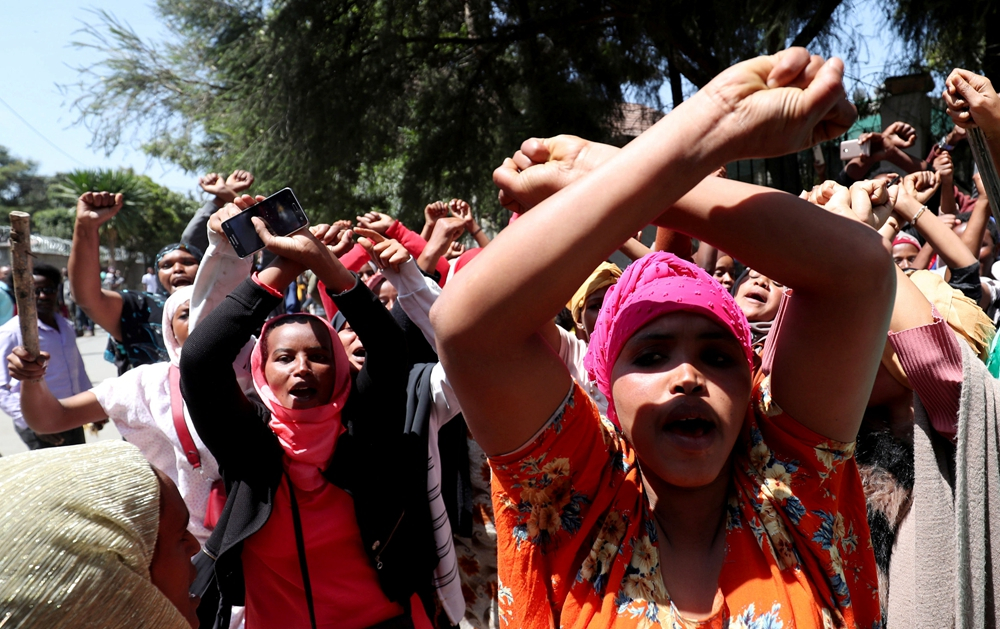Violence in Ethiopia that began with protests against Prime Minister Abiy Ahmed and quickly morphed into ethnic clashes has left 67 people dead in Oromia state, a police official said Friday.
The spike in the death toll came as the high-profile activist at the center of the violence accused Abiy, this year's Nobel Peace Prize laureate, of acting like a dictator and suggesting he might challenge him in elections planned for next year.
"The total number dead in Oromia is 67," said Kefyalew Tefera, the regional police chief, adding that five of the dead were police officers.
03:45

Violence erupted in Addis Ababa, the capital, and in much of Ethiopia's Oromia region on Wednesday after the activist, Jawar Mohammed, accused security forces of trying to orchestrate an attack against him – a claim police officials denied.
The defense ministry said Friday that it was deploying forces to seven hotspots to restore order, according to the state-affiliated Fana Broadcasting Corporate.
Jawar is credited with promoting protests that swept Abiy to power last year but he has recently become critical of some of the premier's policies.
In an interview at his residence in Addis Ababa, Jawar said that Abiy seemed to be taking Ethiopia back to "the old ways" of authoritarian rule.
"He has resorted to the early signs of dictatorship, of trying to intimidate people, even his very close allies who helped him come to power who happen to disagree with some of the policies and positions and ideologies he's advocating," Jawar said.
"Intimidation is the start of authoritarian rule."
Both men are members of the Oromo ethnic group, Ethiopia's largest.
Their feud highlights divisions within Abiy's Oromo support base that could complicate his bid for a five-year term when Ethiopia votes in elections currently planned for May 2020.

Jawar Mohammed, an Oromo activist and leader of the Oromo protest speaks during an interview in Addis Ababa, Ethiopia, October 23, 2019. /Reuters Photo
Jawar Mohammed, an Oromo activist and leader of the Oromo protest speaks during an interview in Addis Ababa, Ethiopia, October 23, 2019. /Reuters Photo
Jawar said that running against Abiy was "one possibility," though he also said he could be convinced to back Abiy if he changes course.
"I want to have an active role in the coming election. In what capacity I'm not sure but I want to make sure that the influence I have in the country has a positive contribution," he said.
Strident parties
The four ethnically based parties in the coalition that has ruled Ethiopia since 1991 are facing increasing competition from new, more strident parties demanding greater power and resources for their own regions.
"For a prime minister whose popular legitimacy relies on his openness, recent protests in Oromiya could be politically suicidal," said Mehari Taddele Maru, an Addis Ababa-based political analyst. "It signals a significant loss of a populist power base that propelled him to power."
If next year's elections are fair – as Abiy has promised they will be – they will test whether the young prime minister can hold together his fractious nation of 100 million people and continue to open up its state-owned economy, or whether decades of state repression have driven Ethiopians into the arms of the political competition.
Jawar said he hadn't decided who else he would support in next year's polls, or whether he would run himself. His Twitter feed has been teasing the possibility last weekend: "The story about me running for office is just speculation. I am running to lose weight."
He refused to be drawn on Friday, adding "I don't exclude anything."
His remarks were his strongest criticism yet of Abiy, with whom he was photographed frequently last year, but the split follows pointed remarks by Abiy to parliament on Tuesday.

Women supporters show the Oromo protest gesture outside Jawar Mohammed's house, an Oromo activist and leader of the Oromo protest in Addis Ababa, Ethiopia, October 23, 2019. /Reuters Photo
Women supporters show the Oromo protest gesture outside Jawar Mohammed's house, an Oromo activist and leader of the Oromo protest in Addis Ababa, Ethiopia, October 23, 2019. /Reuters Photo
Abiy said, without naming anyone, "Media owners who don't have Ethiopian passports are playing both ways ... If this is going to undermine the peace and existence of Ethiopia ... we will take measures."
The comments were widely seen as a dig at Jawar, who is Ethiopian-born but has a U.S. passport and returned from exile last year.
Abiy didn't create Ethiopia's ethnic divisions, but he must address them, said Abel Wabella, a former political prisoner who is now editor of the Amharic-language newspaper Addis Zeybe.
Jawar is "testing the waters," he said. "Ethnic federalism creates monsters ... if Abiy fails to dismantle the power groups based on ethnicity, and to address the structural problems we have as a nation, we will end up in civil war."
(Cover: Oromo youth chant slogans during a protest in Addis Ababa, Ethiopia, October 24, 2019. /Reuters Photo)
(With input from AFP, Reuters)